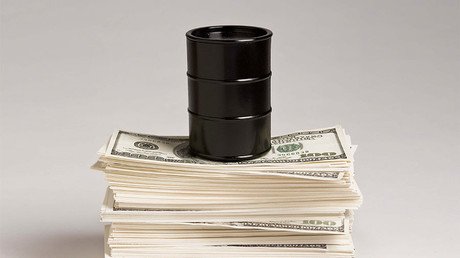China’s petro-yuan ‘thundering into action’ as Iran ditches US dollar in oil trade

Washington’s renewed sanctions on Tehran supports China’s newly established oil futures, analysts say. The sanctions can make the yuan a more preferable currency than the dollar on the oil market.
Since their launch in May, the interest in the renminbi-backed oil contracts has steadily surged. Traded daily volumes hit a record 250,000 lots last Wednesday, and the share of yuan contracts in global trading jumped to 12 percent compared to eight percent in March.
“The contract is thundering into action,” said Stephen Innes, head of trading for Asia/Pacific at futures brokerage OANDA in Singapore, as quoted by Reuters. “It makes sense for Iran to begin selling oil under contracts denominated in yuan rather than dollars.”
China is the largest oil consumer in the world and also buys the most from Iran, a major OPEC producer. Beijing buys 25 percent of Iranian oil exports, which accounts for eight percent of its needs.
“The sanctions... can potentially accelerate this process of establishing a 3rd (oil) benchmark,” said senior vice president for derivatives in Singapore at financial services firm INTL FCStone, Barry White.
By using more yuan in the oil trade, Beijing both saves the costs of exchanging dollars and promotes the renminbi as a global currency, analysts say. Last week, Shanghai futures rose to a dollar-converted record high of around $75.40 per barrel, growing faster than rival benchmarks Brent and WTI.
For more stories on economy & finance visit RT's business section















